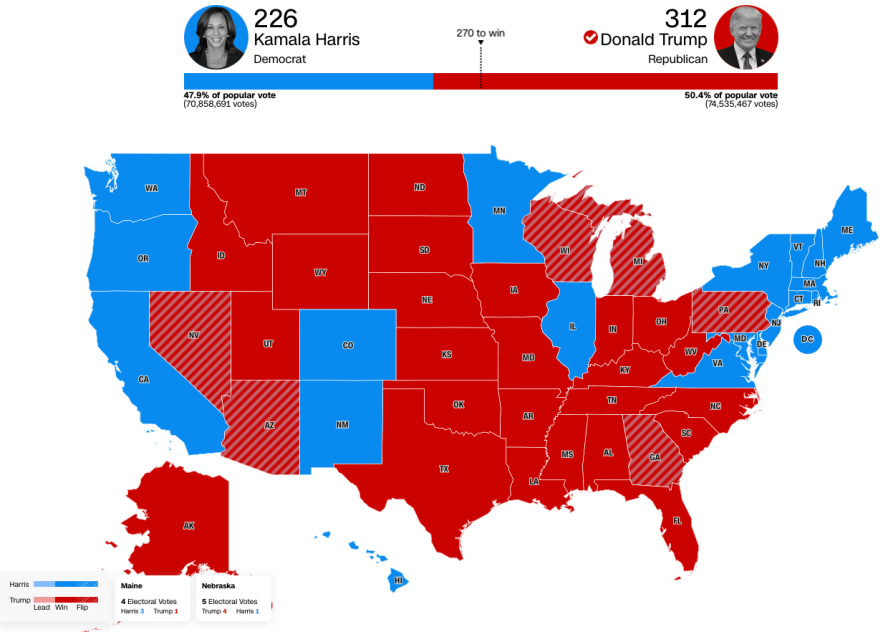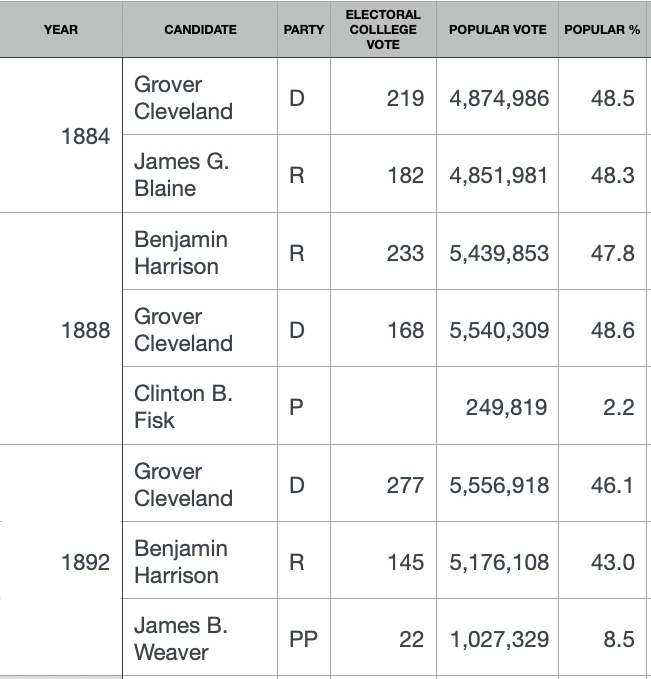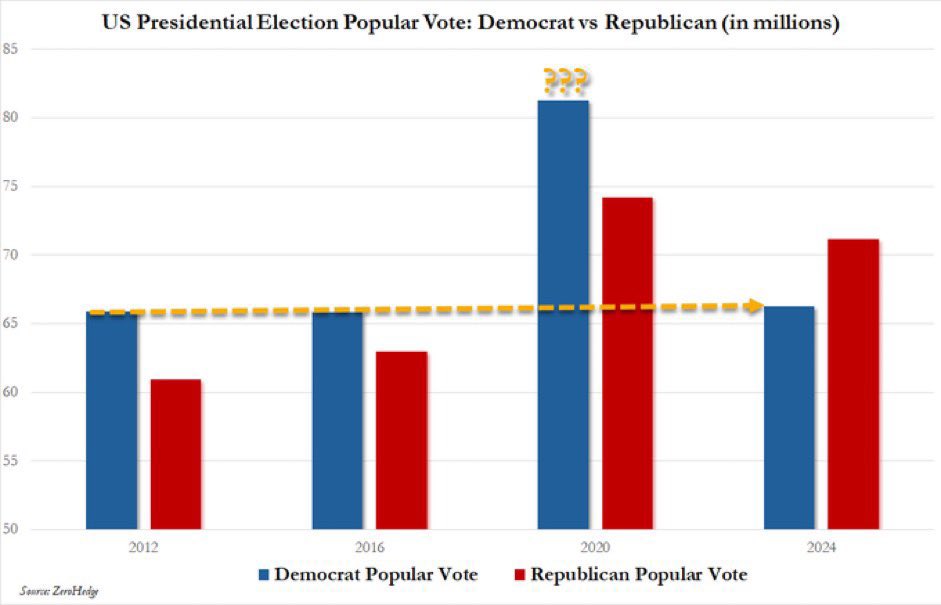Since the election in early November, we’ve seen a lot of think-piece essays on the meaning of it all. Here are some examples:
The end of an American world
Donald Trump’s re-election to a second term on Wednesday, November 6, and the success of the Republican Party, of which he has taken total control, represent a major turning point for the United States.
It’s a reality that needs to be examined with eyes wide open. The path on which Trump, strengthened for his second term by his party’s success in the Senate, will take his country diverges fundamentally from the one charted by the United States since the end of the Second World War. It marks the end of an American era, that of an open superpower committed to the world, eager to set itself up as a democratic model. It’s the famous “shining city on a hill,” extolled by President Ronald Reagan. The model had been challenged over the past two decades. Now, Trump’s return is putting a nail in its coffin.
Editorial, Le monde, November 6, 2024.
Ding, Dong, the Cult is Dead!
The national mass psychosis is finally dealt a blow, making it safe to be sane again
Yes, it’s a cult. The mass movement that continually renamed itself (appearing as #Resistance, antiracism, “prodemocracy,” etc) hits most all the classic definitions. It demonizes outsiders, rejects critical thought, encourages cutting off family and friends (never more than this week), demands adherence to bizarre/nontraditional beliefs, embraces lies in recruitment (cough cough Russiagate), worships secrecy, exaggerates sinfulness of old beliefs, and has an answer for everything. It lacks a charismatic leader. But the lodestar is Trump, cause of all bad things. It’s really an Anti-Trump cult, the perfect postmodern movement, where the animating emotion is panicked rejection of an anti-leader.
Matt Taibbi, November 10, 2024
Trump Has Put an End to an Era. The Future Is Up for Grabs.
This may sound a bit like the most alarmist interpretations of the Trump era — that we are exiting the liberal democratic age and entering an autocratic, or at least authoritarian, American future.
But the new future is much more open and uncertain than that dark vision. While many people voted against Trump because they felt that liberalism or democracy was under threat, many other people moved rightward for the same reason — because they felt that was the way to defend liberal norms against the speech police, or democratic power against control by technocratic elites.
We don’t know which perspective, if either, will be vindicated. All we know is that right now our core political categories are contested — with vigorous disagreement about what both democracy and liberalism mean, unstable realignments on both the left and the right, and “post-liberal” elements at work in right-wing populism and woke progressivism and managerial technocracy alike.
All this indicates the first way that we are not going back: We are not returning to the narrowing of political debate that characterized the world after 1989, the converging worldviews of the Reaganite center-right and the Clinton-Blairite center-left, the ruling-out of radical and reactionary possibilities.
Ross Douthat, “Trump Has Put an End to an Era. The Future Is Up for Grabs,” The New York Times, November 16, 2024.
The End of the Age of Scientism
The only way to save science from itself is to apply it in proper ways while recognizing the limits of the ability to construct the world according to the imaginings of a handful of intellectuals. It’s tragic we had to come to the point of nearly destroying the globe to discover this but here we are. Let the rebuilding begin.
Keep the real science, but throw out the scientism.
Jeffrey Tucker, The Epoch Times, November 29, 2024.
The End of the Age of Hitler
In the age of Hitler, the post – World War II age in which we live, “humanity” is our shared faith. The concept of “human rights” is of course much older, going back to the age of Enlightenment and beyond, and most famously to Thomas Jefferson, who held it to be self-evident “that all men are … endowed by their Creator with certain unalienable rights.” And yet this claim is a problem. Not only because Jefferson wrote it while holding hundreds of men and women in slavery, but also because it is simply, factually wrong. Jefferson and a few of his Enlightenment friends thought that the existence of human rights was a self-evident truth; but it can’t be, because a great many people in a great many historical settings have not believed in any such thing. The claim that “We hold these truths to be self-evident” reveals the doctrine of human rights for what it is: a castle in the air, a defiant existential assertion of values.
But that is not the deepest problem. The deepest problem is that most of us, most of the time, neither know nor care whether “human rights” have a solid foundation beneath them: like Jefferson, we have come simply to believe in them in their own right. Now, in the post-1945 era, in the age of Hitler, we really do hold the existence of human rights and human equality to be self-evident. We can’t, intellectually, prove it to be true; but that doesn’t matter, because we feel that it is true. For now.
Why do we believe that human beings have rights? Even asking it feels uncomfortable, a questioning of what ought not to be questioned. To raise the problem is almost to blaspheme.
Alec Ryrie, First Things, November 2024.







